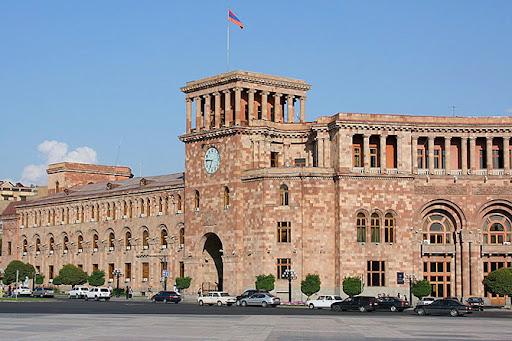Washington's priorities vs. Yerevan's misconceptions Armenian hopes dashed
"I can imagine what is happening in Tbilisi right now!" — this phrase, said by the famous Georgian sports commentator Kote Makharadze after the victory of Tbilisi's Dynamo in the Cup Winners' Cup final in 1981, is now relevant for describing the situation in Armenia. However, instead of the joyous celebrations that Tbilisi experienced over four decades ago, the prevailing mood in Armenia is one of disappointment and frustration.
This discontent stems from the fact that the geopolitical realities Armenia and the global Armenian community had hoped for are crumbling. The Council on Foreign Relations (CFR), a prominent advisor to the U.S. government on global conflicts, has made a clear assessment that the Armenia-Azerbaijan conflict is not a matter of significant concern for the United States. In its list of potential flashpoints for 2025, the CFR highlighted numerous global conflicts but did not include the Armenian-Azerbaijani war as one of the primary concerns for Washington.
The CFR identified 28 potential military conflicts in 2025, yet only 18 were deemed significant for the U.S. For instance, among the events of primary interest to the United States are ongoing anti-government protests in Georgia. According to the report, the U.S. has a medium level of interest in the conflict in Syria between Kurdish fighters and Türkiye.
Meanwhile, in Armenia, there has been daily outcry about the inevitability of a new war with Azerbaijan. Calls for assistance are being made from everywhere, including from the United States. However, as we can see, Washington, where preparations are underway for the change of the White House administration, has entirely different priorities. Specifically, they do not view the war, which could theoretically result from provocations by the Armenian side and the refusal of official Yerevan to fulfil its commitments, as a pressing concern.

The CFR report states that the U.S. lost interest in the Armenian-Azerbaijani conflict after Azerbaijan's anti-terrorist operation in the Karabakh region, which led to the full restoration of Azerbaijan's sovereignty and territorial integrity. In this context, it is worth reminding that Azerbaijan's victory in the 44-day war occurred during Donald Trump's last term in office. This is something that Armenia and the global Armenian community remember all too well.
Earlier, the RAND Corporation, linked to the Pentagon, warned that the U.S. would not intervene to rescue Armenia, advising the country to remain within Russia's sphere of influence. Additionally, a previous report by the analytical company Stratfor, often referred to as the "shadow CIA," indicated that while Armenia and Azerbaijan are likely to continue moving toward a peace agreement, several challenges remain. Disagreements over constitutional changes in Armenia, the full demarcation of their border, and the opening of transit links are expected to impede the conclusion of a peace agreement in 2025.
Given the current situation, the remarks by Armenia's Foreign Minister Ararat Mirzoyan, claiming that "Armenian-American cooperation has already taken on a strategic character," have been met with ridicule. He also asserted that "a strategic dialogue has been established, which, by agreement of the parties, should be elevated to the level of strategic partnership." However, the U.S. State Department swiftly refuted this claim. In response to an inquiry from the Armenian service of Voice of America, they clarified that Washington "has nothing to consider or announce" regarding the signing of a strategic partnership document with Armenia. Official Yerevan’s attempt to create a misleading impression collapsed entirely.

This was not the only reason for concern and fear within the leadership of Armenia. "Türkiye supports the decisive actions of Azerbaijani President Ilham Aliyev aimed at achieving peace in the region," stated Turkish Foreign Minister Hakan Fidan during a briefing for local and international media.
In essence, this was yet another reminder to Armenia’s leadership that it is necessary to accelerate the process of eliminating the main obstacle to signing a peace agreement between Baku and Yerevan. This refers to the amendments to Armenia’s Constitution, which contains territorial claims against Azerbaijan and Türkiye. It is also worth recalling statements made by Azerbaijani President Ilham Aliyev during interviews with domestic TV channels. " If Armenia does not need a peace treaty, we do not need it either. We can live and conduct our own policy without signing it. In other words, I would still advise the Armenian side to weigh everything up, including geopolitical changes in the world," emphasized the Azerbaijani leader. Most importantly, he reminded that Azerbaijan is the leading economy, military power, and state in the South Caucasus.
"In today's world, the power factor is at the forefront and no one should forget this," warned the President of Azerbaijan to Armenia's leadership. This warning is echoed by Turkish Foreign Minister Hakan Fidan, who has expressed support for Baku’s position. Additionally, leading American think tanks have openly stated that the U.S. will not interfere with Azerbaijan's efforts to establish lasting peace in the South Caucasus. Given this, the current situation in Yerevan is not hard to imagine. This outcome, however, was entirely predictable when assessing the reality objectively, rather than being swayed by another round of Armenian myths.








